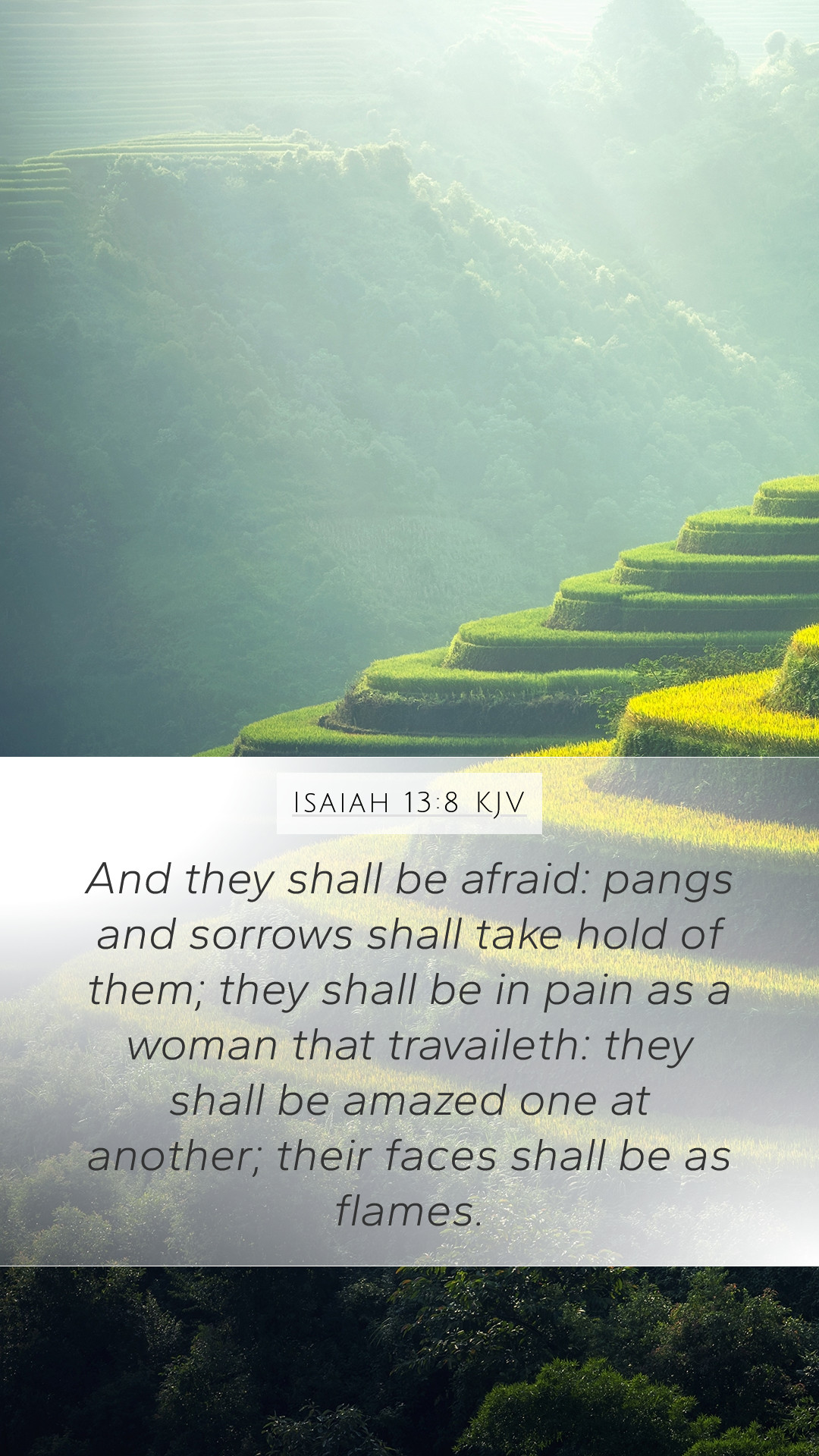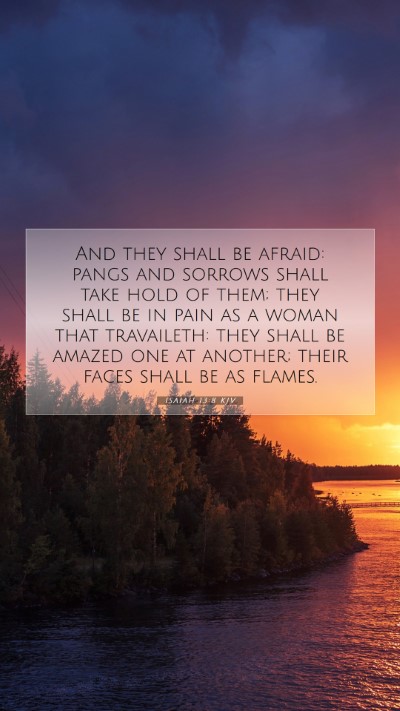Understanding Isaiah 13:8
Isaiah 13:8 states: "And they shall be afraid: pangs and sorrows shall take hold of them; they shall be in pain as a woman that travaileth: they shall be amazed one at another; their faces shall be as flames." This verse depicts a profound emotional and physical reaction to impending judgment, marking the gravity of the prophetic message delivered by Isaiah.
Overview of Isaiah 13
The chapter serves as a prophecy against Babylon, articulating the destruction that awaits due to its arrogance and idolatry. Isaiah uses vivid imagery and intense emotion to convey the impending disaster, reflecting a significant theme in biblical prophecy—the divine response to human pride and sin.
Bible Verse Meaning
In this context, Isaiah 13:8 captures the terror that will seize those facing God's judgment:
- Fear and Terror: The verse emphasizes that people will be gripped by fear, illustrating an intense reaction to divine judgment.
- Pangs and Sorrows: These terms suggest overwhelming distress, comparable to the labor pains of a woman in childbirth, indicating an inescapable and profound anguish.
- Amazement and Confusion: The reaction of the people, being astounded at each other, reflects the chaos and disorder that accompanies such divine intervention.
- Flaming Faces: The mention of faces as flames likely symbolizes intense anguish or suffering, presenting a striking image of despair among those doomed by their actions.
Commentary Insights
Insights from prominent public domain commentaries provide deeper understanding of this verse:
Matthew Henry's Commentary
Henry notes that this prophecy portrays the terror of those who find their security shattered. He highlights that the fear described is not merely physical but deeply spiritual, reflecting the shock of judgment upon a proud nation. The pains of childbirth as a metaphor suggest that what was once a stable environment will descend into turmoil.
Albert Barnes' Notes on the Bible
Barnes discusses the emotional landscape of the inhabitants of Babylon during the impending judgment, pointing out that their startled and panic-stricken reactions serve as a reminder of God's sovereignty over nations. He comments on the specific details, explaining that the imagery of a woman in labor underlines both the suddenness and severity of the calamities they face.
Adam Clarke's Commentary
Clarke adds layers to the interpretation by pointing out the broader implications of this verse for understanding God's judgment in the last days. He emphasizes that this passage should serve as a cautionary tale to all nations about the consequences of pride and the importance of humility before God.
Historical Context
Understanding the historical background of Isaiah's prophecies enhances our grasp of this verse. Written during a time when Babylon was an emerging power, Isaiah's words preemptively warn of its eventual downfall as a consequence of its wickedness and idolatrous practices.
Application in Daily Life
This verse invites readers to reflect on their responses to adversity and the awareness of spiritual realities. Just as Babylon faces reckoning for its pride, individuals today are challenged to examine their own hearts for humility, repentance, and alignment with God's will.
Bible Study Insights
For those engaged in Bible study groups or online Bible study, focusing on Isaiah 13:8 presents an opportunity for in-depth discussion:
- What can we learn about the nature of God's judgment from this verse?
- How can the emotional reactions described speak to our own experiences of fear and uncertainty?
- In what ways does this prophecy relate to current global events and human pride?
Further Cross References
Several other Bible verses can provide additional context and understanding:
- Revelation 18:10 - The lamentation of Babylon's fall.
- Ezekiel 30:4 - Prophecies of judgment against Egypt, illustrating similar themes of national judgment.
- Jeremiah 50:43-44 - A parallel account of Babylon's fall and the fear it instills.


